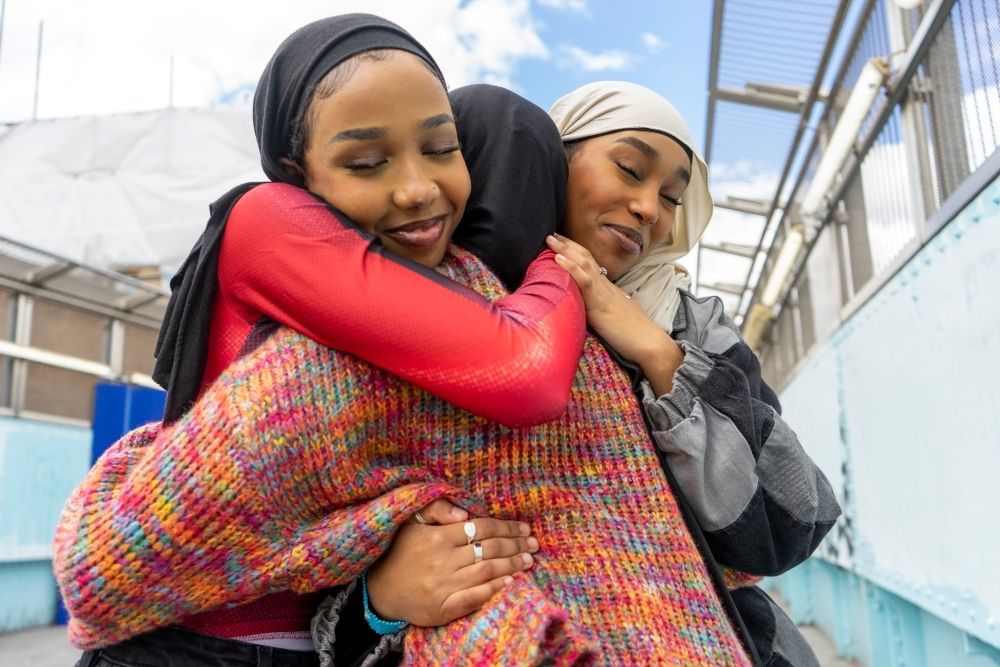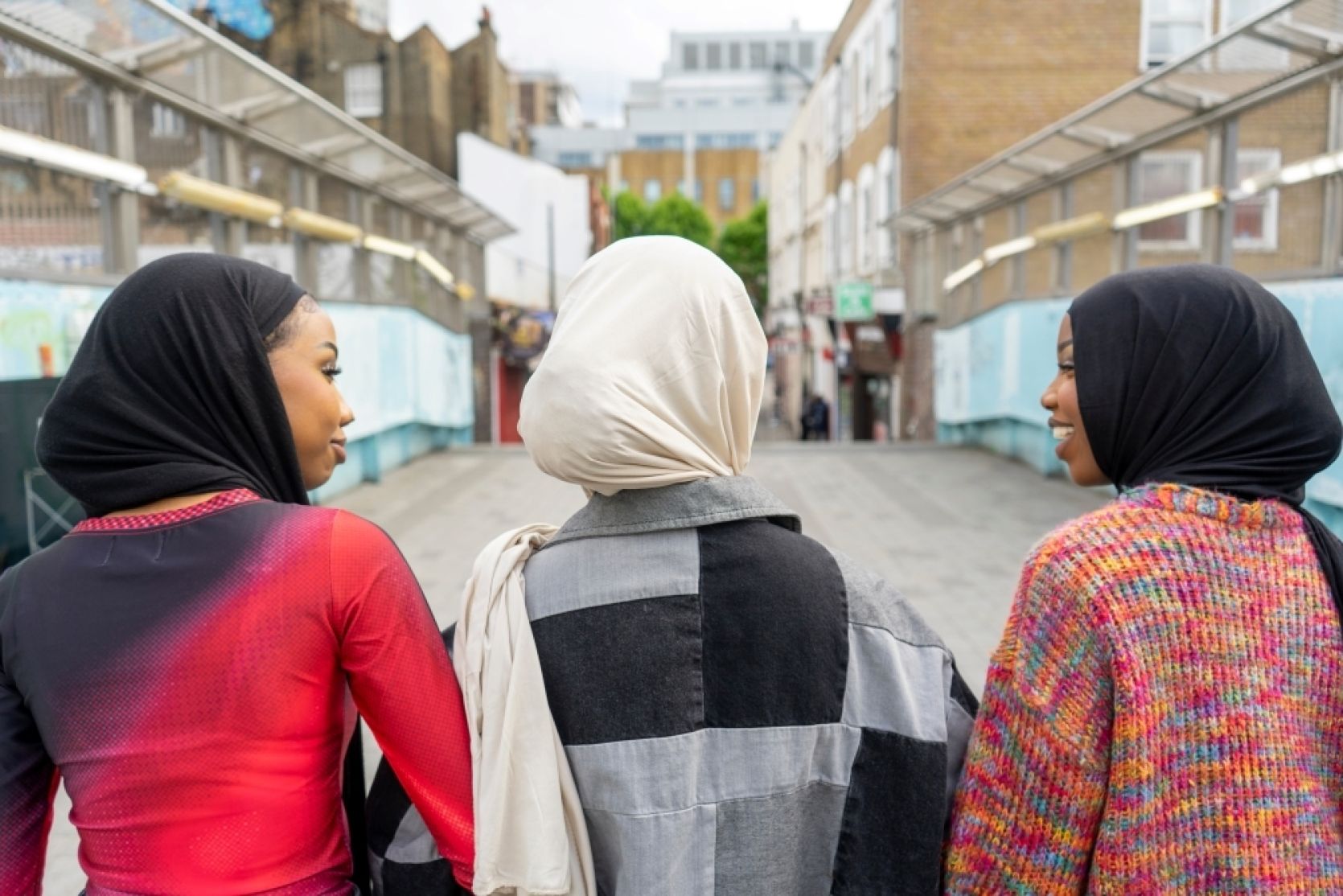
In the wake of the recent far-right riots across the UK, the capital's most vulnerable and marginalised communities have been profoundly impacted. These riots have not only sown fear and division but have also exacerbated existing social inequalities. The London Community Foundation, recognising the urgency of the situation, surveyed in early August to assess the impact of these events on local organisations and the communities they serve. The findings paint a stark picture of a city grappling with fear, distrust, and a growing sense of insecurity. We continue to stand in solidarity, and you can read our statement here..
A City in Crisis
Our survey received 181 responses from organisations across all 32 London boroughs and the City of London. The survey captured various organisations, from newly established groups run by volunteers to large charities. Despite this diversity, a common theme emerged: the riots have profoundly disrupted the lives of those facing significant challenges. Small charities and community groups continue to pivot services and are more impacted during a crisis; 70% of organisations surveyed had an income of under £500,000 a year.
The impact has been significant on communities, and without these vital local community organisations, people will become even more marginalised, and our city will become more unequal and polarised than ever. As communities become more polarised and people more isolated, the very fabric of society in London starts to fray. The care we feel for our neighbours dwindles, and we lose the connection and emotional bonds that bind London together.
We can’t let that happen and let the consequences swallow up people’s lives, hopes and future. Londoners have shown great solidarity in moments like this, and we can remain proud of our collective resilience.
80% of community organisations reported that their community had increased concerns around safety and mental health since the riotsThe London Community Foundation survey - August 2024
Key findings: fear, safety, and social fracture
Several critical themes emerged from the survey, highlighting the multifaceted impact of the riots on London’s communities:
- Heightened fear and safety concerns: A pervasive sense of fear has gripped many communities, particularly affecting Muslim women, individuals in asylum accommodation, and those associated with places of worship. The riots have made people afraid to leave their homes, significantly reducing community engagement and service uptake. This fear is not just a psychological burden but has tangible effects on people’s access to essential services.
- Diminishing trust in authorities: The riots have further eroded trust in the police and local services, which many already perceived as unreliable. This loss of trust has led to missed appointments and a reluctance to seek help, particularly among those who feel most at risk. For these communities, the sense of abandonment by the authorities exacerbates their isolation and vulnerability.
- A mental health crisis: The impact on mental health cannot be overstated. According to the survey, 80% of respondents reported that their community had increased concerns around safety and mental health since the riots, with 38% reporting concerns around access to services, with an increase in individuals refusing to attend sessions/leave their homes due to the fear of intimidation. This rises to 42% when looking at organisations supporting Black, Asian, and other minoritised communities.
- Rising discrimination: The survey found that 41% of respondents perceived an increase in discrimination, with racism and Islamophobia being the most frequently reported forms. An additional 46% were uncertain, suggesting that the true extent of the problem may be even greater. The riots have encouraged those who harbour discriminatory attitudes, leading to a spike in hate crimes and further marginalisation of already vulnerable groups.
Around 50% of community organisations reported incurring unforeseen costs as a direct result of the unrest.The London Community Foundation survey - August 2024
Financial Impact: The hidden costs of unrest
The financial burden of the riots on community organisations has been substantial. Approximately 50% of the survey respondents reported incurring unforeseen costs as a direct result of the unrest. These costs include:
- Security measures: Many organisations have had to invest in additional security, such as CCTV installations and hiring extra staff to ensure the safety of their premises and clients. These costs, while necessary, divert funds away from core services.
- Training expenditure: Organisations have been forced to provide staff with specialised training, such as physical intervention techniques, to prepare them for potential confrontations. This training is essential for the safety of staff and service users but represents an unplanned financial strain.
- Operational disruptions: The riots have led to increased costs related to venue hire, professional fees for cancelled services, and transportation. For example, many staff and volunteers now require taxis instead of public transport due to safety concerns, further inflating operational costs.
- Loss of income: The cancellation of services, workshops, and events has resulted in significant financial losses for many organisations. This loss of income affects their immediate financial stability and jeopardises their long-term sustainability.

Calls for action: Flexible and timely support
In light of these challenges, community organisations are calling for urgent, flexible funding to help them adapt to the rapidly changing landscape. Key areas where support is needed include:
- Core funding: Organisations require reliable funding to cover essential operational costs, which have increased due to the need for enhanced security and other protective measures.
- Mental health initiatives: There is an urgent need for projects that support the mental health and well-being of vulnerable groups, particularly refugees, migrants, and those directly affected by the riots.
- Opportunities for community cohesion: Organisations seek support for initiatives that bring communities together through safe in-person events or online platforms. These initiatives are vital for rebuilding trust and fostering understanding in a divided city and nation. De-radicalisation projects are essential for addressing the underlying issues that have contributed to the rise of far-right extremism.
- Support for women and marginalised groups: Investment in self-defence and personal safety training, multicultural events promoting unity, and activities that help women impacted by the riots feel safe in public spaces again.
Recommendations for Funders: leveraging influence for change
The survey also highlighted several ways in which funders can use their influence to drive positive change. Community organisations are urging funders to:
- Advocate for policy reforms: Funders have a role to play in pushing the government to stop scapegoating migrants and to invest in policies that enhance community safety and cohesion. This includes investing in communities and young people's spaces to promote global awareness and prevent the radicalisation of young people.
- Support migrant charities: There is a critical need for investment in charities that support migrants, who are among the most targeted by the current unrest. Ensuring these communities are not left isolated in asylum accommodations is essential for their well-being and integration.
- Exercise flexibility: Funders are asked to show understanding and patience regarding targets and deadlines. In times of crisis, the immediate needs of vulnerable populations must take precedence over contractual obligations.
A path forward: unity and resilience
As London faces the fallout from these far-right riots, the path to recovery will require unity, resilience, and sustained support for those most affected. The London Community Foundation remains committed to solidarity with the capital's most vulnerable communities, ensuring they receive the support they need to navigate these challenging times. By working together, we can rebuild trust, restore safety, and create a more inclusive and resilient London. We want to sincerely thank all the organisations who have responded swiftly to our survey and shared their insights.
The London Community Foundation survey is a call to action for funders, policymakers, and community leaders to unite to support London’s diverse communities and reaffirm our collective commitment to our civil society. We are working with the London Funders and others to determine the long-term solution and will communicate more accordingly.

